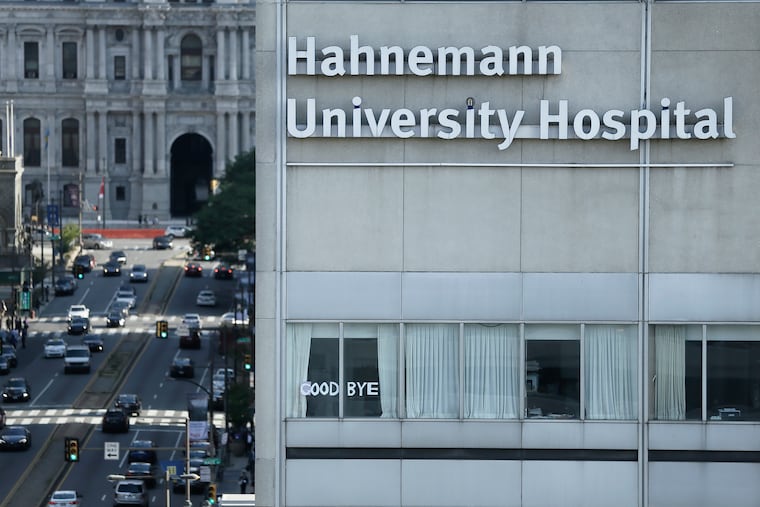Hahnemann closure is symptom of a bigger disease | Editorial
Health care is a national problem, and so is the closing of Hahnemann. That’s not to say that every single Philadelphian shouldn’t be concerned about the loss of the hospital.

The announced closure of Hahnemann University Hospital earlier this month may have felt like a shock to the system for many – including employees, residents, and patients — but it’s been a slow-motion disaster that has been rattling the earth for sometime. And while it has huge implications for the city, its epicenter is closer to Washington than Philadelphia.
The particular circumstances — a venture capitalist buying a hospital to run as a for-profit enterprise is particular to the Hahnemann story — and the speculation that owner Joel Freedman will, post-bankruptcy, turn the building to more profitable condominiums have fueled the outrage over the closure.
Given that the hospital served so many low-income people, the implication that real estate has a higher value than human lives makes the outrage justified.
The widening gap between rich and poor, between haves and have-nots, is usually focused on disparities in economic opportunities, but that gap extends to who is entitled to health care and who isn’t. And that’s a life-or-death equation.
The health-care debate is complicated and highly political. After years of negotiation, the Affordable Care Act attempted to solve the problem; while flawed, it has provided insurance for millions of Americans who didn’t have it. But Congress continues to try to tear that apart.
Health care is a national problem, and so is the closing of Hahnemann. That’s not to say that every single Philadelphian shouldn’t be concerned about the loss of the hospital. A high-poverty city that is already suffering physically is going to suffer more.
The city’s Public Health Department reports on the health of the city annually. The data are stark. The city already suffers from an infant mortality rate higher than those in other big cities and nationwide. On a county comparison, Philadelphia’s child mortality rate is also higher than many major cities'.
Nine percent of residents are without insurance, and 22 percent are on Medicaid, which reimburses at far lower rates than private insurance (contributing to Hahnemann’s problems). Our homicide mortality rate is triple the national average.
And according to the Centers for Disease Control and Prevention, overall life expectancy has recently declined, driven by the opioid epidemic.
These data represent human suffering that not only commands empathy but affects every single one of us. A city where more and more people are sicker, leading to an inability to contribute and thrive, strains the system and takes away resources from other vital needs.
The city and state must figure out what will be left in Hahnemann’s place once it closes. That includes how people who have to travel farther for care will fare, where their medical records will end up, and how they will withstand what are likely to be longer wait times to get care. The city doesn’t lack for hospitals or hospital beds. What it does lack is the capacity to provide care to the most vulnerable – the poor and the uninsured. And the answer to that, unfortunately, requires that we build a system with the underlying philosophy that all humans are entitled to equal access to quality health care.